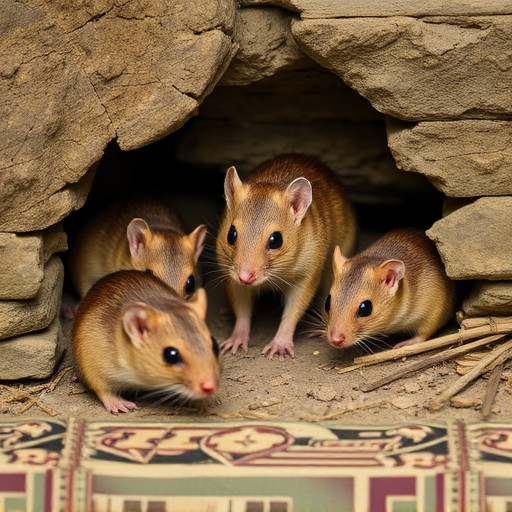Rodents like the California mouse, house mouse, and desert wood rat are common in Tucson, with behaviors influenced by climate, habitat, and human activities. Effective rodent control in Tucson requires a multi-faceted approach including cleanliness, sealing entry points, professional services (traps, repellents, baiting), and regular inspections to prevent infestations, creating a safer, hygienic environment. (rodent control Tucson)
Tucson, with its diverse landscape, presents unique challenges when it comes to understanding and managing rodent populations. This article delves into the behavior and habitat preferences of rodents common to the region, exploring factors that influence their presence in urban settings. From identifying specific species to implementing effective control strategies for both residential and commercial areas, we provide valuable insights for Tucson residents facing these pest issues. Discover how knowledge translates into powerful tools for rodent control.
- Rodent Species Common to Tucson: Identifying Your Pests
- Factors Influencing Habitat Selection and Behavior in Tucson's Environment
- Effective Strategies for Rodent Control in Residential and Commercial Settings
Rodent Species Common to Tucson: Identifying Your Pests

Rodents are a common sight in Tucson, with several species making their homes in and around our city. Identifying these pests is the first step in effective rodent control Tucson residents often seek. Some of the most prevalent rodents in this area include the California mouse, also known as the deer mouse, and the common house mouse. Both are agile and adaptable, capable of living in various environments but prefer areas with access to food and shelter.
The desert wood rat is another species native to Tucson and its surroundings. As their name suggests, they are often found near woody vegetation and stores food in their burrows during the summer months for winter sustenance. Understanding these habits can help residents implement rodent control measures tailored to each specific species, ensuring a more effective and humane approach to pest management.
Factors Influencing Habitat Selection and Behavior in Tucson's Environment

In Tucson, various factors shape the habitat selection and behavior of rodents, impacting both urban and natural environments. Climate plays a significant role—rodents prefer areas with moderate temperatures and readily available water sources. The city’s arid climate, however, necessitates that they seek shelter in cooler, more humid microhabitats, such as beneath structures or in dense vegetation.
The availability of food is another critical influencer. Rodents are opportunistic feeders, attracted to environments with abundant plant matter, especially during the dry seasons when natural food sources are scarce. Urban areas, with their manicured lawns and gardens, offer plentiful resources, making them attractive habitats for some species. Human activities, like landscaping and construction, can further alter preferences, potentially favoring certain rodent species over others based on altered vegetation density and food availability.
Effective Strategies for Rodent Control in Residential and Commercial Settings

In Tucson, effective rodent control requires a multi-faceted approach tailored to both residential and commercial settings. One crucial strategy involves maintaining cleanliness and eliminating potential food sources. Rodents are attracted to areas with easy access to food, water, and shelter, so regularly cleaning up groceries, disposing of waste properly, and sealing entry points can significantly deter their presence. Additionally, using traps and repellents specifically designed for rodents can be highly effective in targeted areas.
Professional services specializing in rodent control Tucson offer advanced solutions such as baiting systems and ultrasonic repellers. These methods are not only safe for humans and pets but also environmentally friendly alternatives to harsh chemicals. Regular inspections by pest control experts can help identify and address rodents early, preventing infestations from becoming entrenched. By combining these strategies, residents and businesses in Tucson can effectively manage and control rodent populations, ensuring a safer and more hygienic living environment.
Understanding the behavior and habitat preferences of rodents in Tucson is key to implementing effective rodent control strategies. By recognizing the species common to the area and the factors that influence their habitat selection, residents and businesses can take proactive measures to mitigate pest problems. Adopting tailored strategies for both residential and commercial settings ensures a safer, more comfortable environment for all. When it comes to rodent control Tucson has access to advanced methods that respect both property and wildlife, offering lasting solutions for a smoother, more peaceful co-existence.
